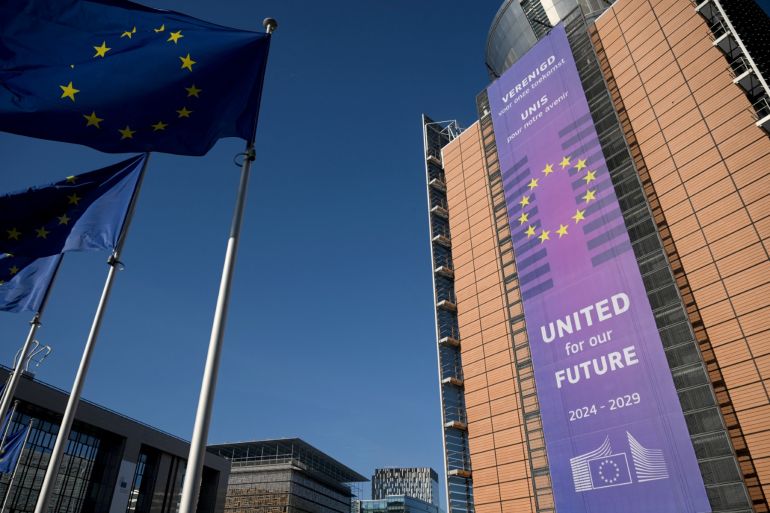EU moves to ease AI, privacy rules amid pressure from Big Tech, Trump
Bloc proposes delaying strict rules for ‘high-risk’ AI until 2027 in bid to address concerns about lagging innovation.

By John Power
Published On 20 Nov 202520 Nov 2025
Save
The European Union has moved to scale back its sweeping rules governing artificial intelligence and data privacy in a bid to boost lagging innovation within the bloc.
The European Commission’s unveiling on Wednesday of what it is calling the “Digital Omnibus” marked the culmination of a showdown between tech companies aggravated by red tape and privacy advocates fearful of an erosion of digital rights.
Recommended Stories
list of 4 itemsend of list
Under the reform package, the bloc would delay the introduction of stricter risk-management and oversight rules for “high-risk” AI until 2027, and allow tech firms to use anonymised personal data to train AI models.
The reforms, which amend the AI Act and several other privacy and tech-related laws, would also cut back on website pop-ups asking permission to use cookies and reduce documentation requirements for small and medium-sized businesses.
EU tech chief Henna Virkkunen said the changes, which need to be approved by representatives of the 27 EU member states, would boost European competitiveness by simplifying rules about AI, cybersecurity and data protection.
“We have talent, infrastructure, a large internal single market. But our companies, especially our start-ups and small businesses, are often held back by layers of rigid rules,” Virkkunen said.
Lobby groups for tech giants in the United States, where President Donald Trump’s administration has been a vocal critic of Europe’s regulatory approach, welcomed the move, while lamenting that the measures did not go far enough.
“Unfortunately, the Omnibus misses critical opportunities to raise the outdated compute threshold for identifying AI models which pose a ‘systemic risk’, and fails to fix problematic wording on the extraterritoriality of copyright provisions, which conflicts with EU and international principles,” said the Computer & Communications Industry Association, whose members include Google, Apple and Meta.
Advertisement
Meanwhile, privacy rights advocates assailed the reforms as a capitulation to Big Tech.
“This is the biggest attack on Europe’s digital rights in years,” said Max Schrems, the founder of Vienna-based rights group NOYB – European Center for Digital Rights.
“When the commission states that it ‘maintains the highest standards’, it clearly is incorrect. It proposes to undermine these standards.”
Gianclaudio Malgieri, an associate professor of law and technology at Leiden University in the Netherlands, said the proposals marked a shift away from a rights-based approach to tech regulation that had distinguished Europe from the US.
“If adopted as they stand, these reforms risk moving the EU model closer to a more permissive, industry-driven approach to AI and data use, at the very moment when the world is watching Europe to see whether it can offer a real alternative,” Malgieri told Al Jazeera.

